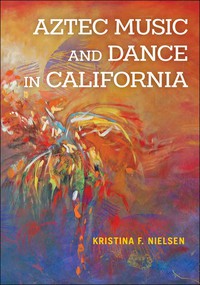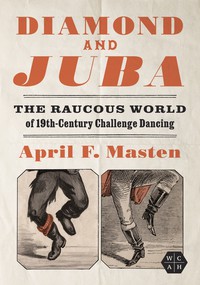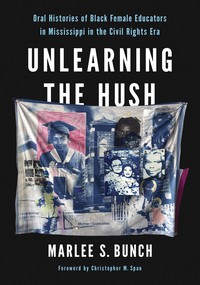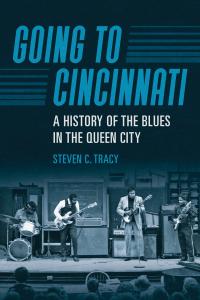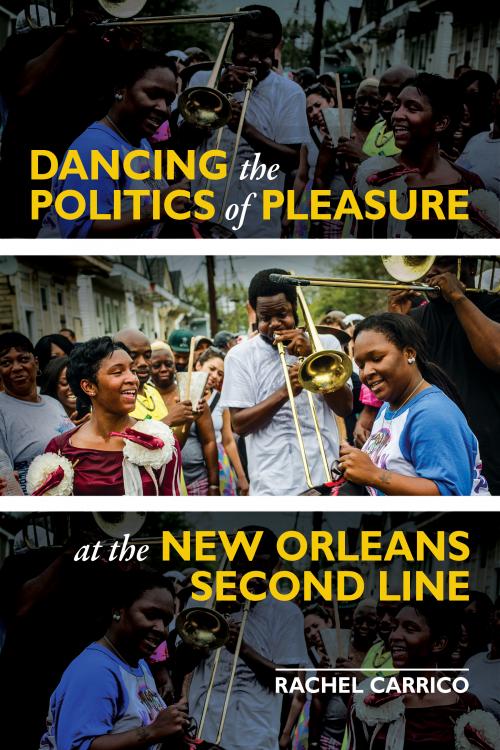
Dancing the Politics of Pleasure at the New Orleans Second Line
Cloth: 10/22/2024
About the Book
On many Sundays, Black New Orleanians dance through city streets in Second Lines. These processions invite would-be spectators to join in, grooving to an ambulatory brass band for several hours. Though an increasingly popular attraction for tourists, parading provides the second liners themselves with a potent public expression of Black resistance.Rachel Carrico examines the parading bodies in motion as a form of negotiating and understanding power. Seeing pleasure as a bodily experience, Carrico reveals how second liners' moves link joy and liberation, self and communal identities, play and dissent, and reclamations of place. As she shows, dancers' choices allow them to access the pleasure of reclaiming self and city through motion and rhythm while expanding a sense of the possible in the present and for the future.
In-depth and empathetic, Dancing the Politics of Pleasure at the New Orleans Second Line blends analysis with a chorus of Black voices to reveal an indelible facet of Black culture in the Crescent City.
* This publication was supported in part by the University of Florida Center for the Humanities and the Public Sphere (Rothman Endowment).
About the Author
Rachel Carrico is an assistant professor of theatre and dance at the University of Florida.Reviews
"Carrico has written a book that adds a major chapter to the history of Black culture in New Orleans. It is a continuation of numerous other efforts over the years and brings the story fully into the 21st century." - OffBeat MagazineBlurbs
“A triumphant exploration of dance as public expression of Black culture-in-motion, Dancing the Politics of Pleasure at the New Orleans Second Line combines ethnography and careful historical recovery to theorize pleasure as an urgent valence of collective aesthetic action. Carrico reveals how parading moves Black sovereignty through the streets of New Orleans, modeling defiance and self-actualization as essential aspects of Black social dance.”--Thomas F. DeFrantz, Founding Director, Collegium for African Diaspora Dance
Supplemental Material
Supplementary Materials: Audio, Video, and Photographs
Allison Miner Series
Oral History Recordings
Catina Braxton Interview
 MP3
Transcript
MP3
Transcript
Don Robertson Interview
 MP3 Part 1
MP3 Part 1
 MP3 Part 2
Transcript
MP3 Part 2
Transcript
Tamara Jackson Snowden interview
 MP3
Transcript
MP3
Transcript
Tyree Smith interview
 MP3
Transcript
MP3
Transcript
Wellington "Skelly" Ratcliff Jr. interview
 MP3 Part 1
MP3 Part 1
 MP3 Part 2
MP3 Part 2
 MP3 Part 3
Transcript
MP3 Part 3
Transcript
Chapter 1: Coming Out the Door
1.1: NOLA Second Line Coming Out the Door
This montage of various SAPCs coming out the door was compiled by Latanya d. Tigner, choreographer with Dimensions Dance Theatre, as part of her research into second lining
Interlude: Barbara Lacen Keller
Chapter 2: Community
2.1: Inside the circle, children's footwork skills are honed
Tyree Smith dances with a young girl on the sidewalk during the VIP Ladies & Kids Second Line parade, March 30, 2014. Footage by Rachel Carrico.
Interlude: Rodrick "Scubble" Davis
If Cities Could Dance: High-Stepping Moves on New Orleans' Second Line Parades
This 2018 episode of If Cities Could Dance, the Webby Award-winning KQED Arts video series, features Rodrick "Scubble" Davis. Catina Braxton Robertson also appears. Directed by Kelly Whalen. Rachel Carrico served as Editorial Advisor.
Chapter 3: Spirit
3.1: Second Line - Original Big 7 - Mother's Day Parade
See the Original Big Seven SAPC dance out the door of President Edward Buckner's home to kick off their 2019 Mother's Day parade. Filmed and shared by New Orleans community radio station, WWOZ.
3.2: Dirge Step / Dead Man Walk
Several versions of the funeral's dirge step, or "dead man walk," was on display during this mini-memorial that occurred during the Young Men Olympian, Jr. Benevolent Association's Second Line parade on September 11, 2011. Footage by Rachel Carrico.
3.3: Spirited Footwork
An array of second liners showcase spirited footwork as the Hot 8 Brass Band plays their popular tune, "Miss My Homie," during the Single Ladies SAPC's June 2, 2013, Second Line Parade. Terrylyn Dorsey is moved to dance to one of her favorite songs (0:50, yellow shirt), and the clip ends with Wellington "Skelly" Ratcliff Jr. feeling the music (1:08), showcasing his wheelchair footwork while dancing with a fellow member of the Uptown Swingers SAPC. Footage by Rachel Carrico.
Interlude: Gerald Platenburg
Gerald Platenburg footwork March 23, 2014
Gerald Platenburg showcases his footwork on the sidewalk during The Revolution SAPC's Second Line parade on 3 23 14. Footage by Rachel Carrico.
Inside the New Orleans Nine Times Second Line Parade | MTV News
This MTV Short, directed and produced by New Orleans-based filmmakers Zac Manuel and Lily Keber, documents the Nine Times SAPCs' Second Line parade, which Gerald Platenburg discusses in his oral history interlude, that gave homage to the Black Panthers and was themed "Black Lives Matter" and "All Lives Matter."
Chapter 4: Freedom
4.1: NOLA Resistance Oral History Project: March on City Hall
CORE member Don Hubbard describes organizing the 1963 Freedom March on City Hall. Listen to the entire interview with Hubbard and other 1960s activists on the Historic New Orleans Collection's NOLA Resistance Oral History Project website (https://www.hnoc.org/research/nola-resistance-oral-history-project).
Interlude: Terrylyn Dorsey
Terrylyn Dorsey on the Sidewalk
This is the Instagram video that went viral and catapulted Terrylyn Dorsey to fame, as she discusses in her oral history interlude.
Chapter 5: Do Whatcha Wanna
5.1: Do Whatcha Wanna
The chapter's title is taken from the Rebirth Brass Band's 1995 carnival classic, "Do Whatcha Wanna."
5.2: Dirty Dozen Brass Band at the Glass House: Bongo Beep
The thrilling exchanges between musicians and dancers at the Glass House were captured by Alan Lomax in 1982 for his film, Jazz Parades. In this clip from the Alan Lomax Archive, we see dancers showcasing up-tempo footwork as the Dirty Dozen Brass Band plays "Bongo Beep."
Interlude: Nicole Lazard
Chapter 6: Home
6.1: Second Lining above the crowd during the 2013-14 Second Line season
All footage by Rachel Carrico, captured during various parades of the 2013-14 Second Line season. The woman dancing on the porch of a Baptist Church (0:08) occurred during Keep-N-It Real SAPC's Second Line on March 9, 2014. Leo Gorman dances atop a transformer during the Original Big Seven's re-do parade on June 1, 2013 (0:42). A parader grooves atop an overpass near the end of that same parade (0:57). Rodrick "Scubble" Davis and Harry Jackson leverage a springing chain-link fence ceiling (1:05). A white second liner known to the community as "Bin Laden" (The Stooges Brass Band even named a song after him) takes exceptional risk to dance atop a I-beam (1:17). Davis dances atop a school bus (1:47) and Jackson dances atop a parked U-Haul truck (2:05).
6.2: High heeled footwork
Nicole Lazard demonstrates her high-heeled footwork and Terrylyn Dorsey showcases her sneakered footwork as they both parade as part of the Single Men SAPC on March 19, 2017. Footage by Rachel Carrico.
6.3: Edward Buckner Oral History
In this oral history, conducted by the Ponderosa Stomp Foundation (http://www.ponderosastomp.com/about.php), Original Big Seven Social Aid and Pleasure Club President Edward Buckner discusses his musical and cultural background in the St. Bernard Public Housing Development, and his advocacy in the Second Line community. (Learn more about the St. Bernard Public Housing Development's influential role in New Orleans's musical and cultural histories on community radio station WWOZ's online music history guide, A Closer Walk [https://acloserwalknola.com/places/st-bernard-public-housing-development/].)
Interlude: Joe Stern
Epilogue
7.1: Perfect Gentlemen SAPC Second Line June 20, 2021
After the COVID-19 suspension of Second Line parades beginning March 2020, the first "post-pandemic" Second Line to be permitted by the City of New Orleans was the Perfect Gentlemen Social and Pleasure Club's Father's Day parade on June 20, 2021. The To Be Continued Brass Band led a crowd that grew over the course of a short route, which we had no trouble completing within the remaining permitted hour. Footage by Rachel Carrico.
7.2: Big 7 Stop the Violence parade
On June 20, 2021, the same day as the Perfect Gentlemen SAPC's Second Line, the Original Big Seven also held a march. President Edward Buckner's Facebook post featured a flyer announcing its "Father's Day Celebration / Stop the Violence March" and urging New Orleanians to join them as they "celebrate life with a Secondline." In this clip, BJ (Benjamin Jones), the club's public relations manager, dances while holding a sign remembering his sons, both victims of gun violence. Club member Leo Gorman holds a sign that reads "Resourced Communities = Safer Communities." Footage by Rachel Carrico.
Supplemental Links
Historic New Orleans Collection, in partnership with the Neighborhood Story Project, compiled a virtual exhibit, research guide, and interviews with SAPC members: Dancing in the Streets ( https://www.hnoc.org/exhibitions/dancing-streets-social-aid-and-pleasure-clubs-new-orleans ).
Neighborhood Story Project ( https://www.neighborhoodstoryproject.org/bookshop ). Buy one or more of the excellent books referenced throughout Dancing the Politics of Pleasure.
Music Rising at Tulane: The Musical Cultures of the Gulf South (https://musicrising.tulane.edu/). Archival footage, digitized oral histories, and K-12 Educator resources.
Roll With It (https://mattsakakeeny.com/home-2/). The web companion to ethnomusicologist Matt Sakakeeny's book about New Orleans brass bands, with video excerpts, radio interviews, and more.
Buckjumping film trailer (https://youtu.be/KfIuMJlCK_4). Directed by Lily Keber, this 2018 film documents second lining as a dance form alongside other dance cultures in New Orleans.
Itchy World Instagram feed (https://www.instagram.com/itchy_world/?hl=en). In the mid-2010s to the time of publication, Brandon "Itchy" Shelly was the go-to social media documentarian for dancers at the Second Line. His Instagram feed contains one of the best archives of dancing at the Second Line during this period.
WWOZ YouTube Second Line Playlist (https://www.youtube.com/playlist?list=PLFqPYgV9Bwxr02Ok9drfdFB2WW4cQpn8e).
WWOZ Takin It To the Streets (https://www.wwoz.org/programs/inthestreet). Takin' It to the Streets® is WWOZ's multi-platform program celebrating New Orleans' social aid & pleasure clubs, second lines, Black Masking Indians, Baby Dolls, and brass band traditions.
WWOZ Just a Closer Walk (https://acloserwalknola.com/). An online guide to New Orleans music history, organized geographically according to significant neighborhoods and sites, including many of those discussed in Dancing the Politics of Pleasure.


